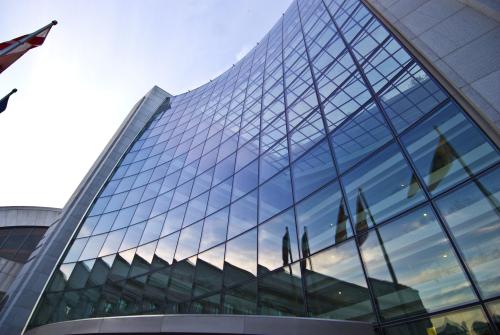Chief executives of large-cap companies saw a median pay increase of 7.5 percent between 2024 and 2025 despite ‘market turbulence’, according to the latest data from ISS-Corporate.
The firm, which provides data and analytics to corporations, scrutinized the salaries of CEOs at 320 S&P 500 companies. Salary growth is down slightly from the year before, when it grew 9.2 percent.
Like years prior, the increase in compensation was largely due to increases in stocks and options. The median base salary increase was 2.7 percent (or $1.3 mn), but the median stock award grew 6.9 percent ($9.9 mn) and the median option award by 6 percent ($3.3 m).
ISS-Corporate managing director Roy Saliba stated in a press release that ‘CEO pay disclosures at large US companies broadly reflect the strong market performance of last year. However, recent market turbulence and ensuing uncertainty around tariffs, a global trade war and a possible looming recession could raise concerns over significant CEO pay increases at companies that may be facing headwinds in the coming months.’
The statement marks a change from the previous five years: in 2023 ISS found that 70 percent of CEOs took home their target compensation in 2022, a figure that was largely unchanged over a five-year research period from 2018 ‘despite market volatility.’
At that time, Saliba commented that ‘despite significant variability in economic conditions over the last five years, the percentage of CEOs achieving payouts at or above target has remained relatively unchanged,’ adding that ‘the findings call into question whether boards and compensation committees are setting sufficiently rigorous targets for their CEOs.’
Markets and company performance
As for this year’s targets, Bruce Goldfarb, chief executive at proxy solicitation and investor response firm Okapi Partners, tells Governance Intelligence that he is unsurprised by the results. ‘Ultimately, the valuation of that compensation is partly based on where the markets are and company performance.
It makes sense that it might be down a little bit, but it really depends on the specific company and the industry they are in. As a firm, we help our corporate clients with compensation related issues and it's important to them that shareholders approve their executive compensation at a meaningful level that doesn’t cause consternation.'
To that point, proxy advisory firm and ISS competitor Glass Lewis recently made headlines by advising against an exorbitant pay package for top executives at Goldman Sachs. The $80 mn in question was a restricted stock package.
Even without outliers like Goldman Sachs, ISS figures showed that the US compensation far outstripped that seen in the UK. Median pay at FTSE companies increased 11 percent to $6.5 mn, compared to $16 mn in the US, according to ISS.
Regardless of the numbers themselves, Goldfarb concludes that measuring year-by-year may not be effective: ‘I wish that the compensation decisions were made over a longer period of time, so that there were some way to see if you’re really aligning value with performance.’









